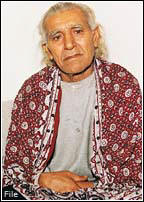Saraiki people
From Wikipedia, the free encyclopedia
| ||||||||||||||
| Total population | ||||||||||||||
|---|---|---|---|---|---|---|---|---|---|---|---|---|---|---|
| 13.9 million | ||||||||||||||
| Regions with significant populations | ||||||||||||||
| 13,800,000[1] | ||||||||||||||
| Languages | ||||||||||||||
| Saraiki | ||||||||||||||
| Religion | ||||||||||||||
| Islam; minority practice Hinduism | ||||||||||||||
| Related ethnic groups | ||||||||||||||
| Punjabi people • Sindhi people • Baloch people | ||||||||||||||
The Saraiki people (Saraiki: سرائیکی قوم) are a linguistic group native to southern Punjab, northern Sindh, Southern Khyber Pakhtunkha and northeastern Balochistan provinces of Pakistan.
The Saraiki speaking people follow many religions, among them mostly Islam but also some are Hindu. The predominantly Muslim Saraiki population supported Muslim League and Pakistan Movement. After the independence of Pakistan in 1947, the minority Hindus and Sikhs migrated to India while the Muslims refugees from India settled down in the Seraiki region of Pakistan.[2] A significant number of Saraiki speaking people also reside in India, with most concentrated in Punjab, Haryana, Delhi, Maharashtra and Gujarat.[1]
See also
- List of Saraiki tribes
- Saraiki language
- Saraiki literature
- Saraiki culture
- Saraikistan
References
- ↑ 1.0 1.1 "Saraiki". Ethnologue. Retrieved 2007-07-14.
- ↑ Pierre Herman Leonard Eggermont. "Alexander's campaigns in Sind and Baluchistan and the siege of the Brahmin". Pp 146>.
This article is issued from Wikipedia. The text is available under the Creative Commons Attribution/Share Alike; additional terms may apply for the media files.












